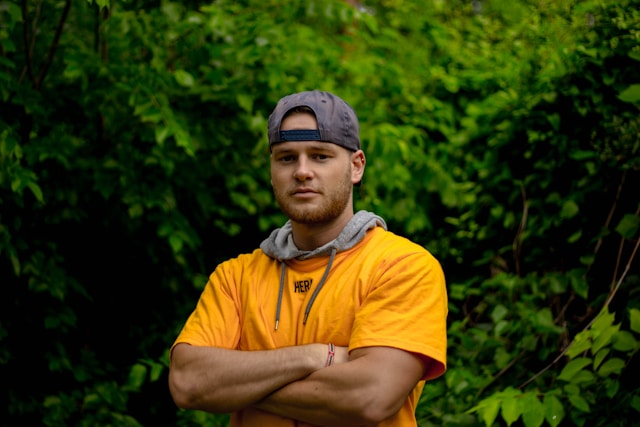We all have ways of getting through tough times, but they’re not always the healthiest.

If the things you do to comfort yourself or keep from losing your mind when the world seems to be throwing everything terrible your way are less than ideal, you can change. You’ll need to unlearn your unhealthy coping skills if you ever hope to replace them with better ones, so here’s how to get started.
1. Recognise that change isn’t going to happen overnight.

Unlearning habits takes time. Your coping mechanisms didn’t pop up overnight, so they won’t disappear immediately, either. Be patient with yourself. It’s a process, and every small step counts. Rome wasn’t built in a day, and neither is a healthier you.
2. Identify your triggers and what you’re really feeling.

Half the battle is knowing what sets you off. Start paying attention to what’s happening when you fall back on those unhealthy coping skills. Are you stressed? Lonely? Bored? Once you know what’s actually going on underneath, you can start addressing the real issue instead of just papering over the cracks.
3. Don’t beat yourself up when you slip back into old habits.

Backsliding happens — it’s part of the process. If you end up falling back on old coping mechanisms, don’t throw in the towel. Treat it as a learning experience rather than a failure. What led to the slip-up? What can you do differently next time? Progress isn’t always linear, after all.
4. Replace unhealthy coping skills with healthier ones.

I know that’s kinda the entire point here, but stick with me here. If you’re trying to ditch an unhealthy coping skill, you need to fill that gap with something else. Maybe instead of reaching for a drink when you’re stressed, you go for a walk. Or instead of binge-eating when you’re sad, you call a friend. Those aren’t necessarily helpful examples, but find what works for you.
5. Learn to sit with uncomfortable feelings.

One reason we develop unhealthy coping skills is to avoid feeling bad, but emotions, even the unpleasant ones, aren’t going to stick around forever. They come and go. Learning to sit with discomfort without immediately trying to numb it or push it away is a valuable skill. It’s not easy, but it gets easier with practise.
6. Challenge your thought patterns.

Our thoughts can be sneaky little troublemakers sometimes, especially when they convince us we need that unhealthy coping mechanism. Start questioning these thoughts. Are they actually true? Are they helpful? A lot of times, you’ll find they’re neither. Challenging and reframing these thoughts can help break the cycle.
7. Create a support system that understands your journey.

You don’t have to go it alone. Surround yourself with people who get what you’re trying to do. They can offer encouragement when things get tough, celebrate your victories with you, and maybe even share some of their own experiences. Having a solid support system can make a world of difference.
8. Develop a mindfulness practise.
 Source: Unsplash
Source: Unsplash Mindfulness isn’t just for yoga lovers — it’s about being present in the moment and aware of your thoughts and feelings without judgement. A bit more awareness can help you catch yourself before you fall into unhealthy coping patterns. It doesn’t have to be complicated — even a few minutes of deep breathing can help.
9. Set realistic goals and celebrate your progress along the way.
 Source: Unsplash
Source: Unsplash You’re not going to build all new habits in a day or two — you have to take it step by step. Set small, achievable goals for yourself. Maybe it’s going one day without your unhealthy coping mechanism, or using a healthier one once this week. When you hit those goals, celebrate! Acknowledging progress, no matter how small, can be really motivating.
10. Learn to communicate your needs.
 Source: Unsplash
Source: Unsplash Sometimes we turn to unhealthy coping skills because we don’t know how to ask for what we need. That’s why learning to express yourself in a way that’s clear and assertive is such a game-changer. It might feel awkward at first, but being able to say “I need help” or “I’m not okay” can open doors to healthier ways of coping.
11. Explore the root causes of your unhealthy coping mechanisms.
 Source: Unsplash
Source: Unsplash These habits didn’t come from nowhere, right? They served a purpose at some point, even if they’re not helpful now. Understanding where they came from can help you address the underlying issues and find better ways to meet those needs.
12. Create a toolbox of healthy coping strategies.
 Source: Unsplash
Source: Unsplash One size doesn’t fit all when it comes to coping strategies, and what works one day might not work the next. That’s why it’s good to have a variety of tools at your disposal. Maybe it’s exercise, journaling, talking to a friend, or doing a hobby you enjoy. The more tools you have, the more prepared you’ll be to handle whatever life throws your way.
13. Show yourself a bit of compassion.

Be nice to yourself. Unlearning unhealthy coping skills is hard work, and you’re doing your best. Talk to yourself like you would a good friend. Would you berate them for struggling? Probably not. Treat yourself with the same kindness and understanding. Remember, you’re human, and you’re trying. That counts for a lot.
14. Establish healthy routines and boundaries.
 Source: Unsplash
Source: Unsplash Structure can be really helpful when you’re trying to change habits. Develop routines that support your overall wellness — like regular sleep patterns, healthy eating, and time for relaxation. And don’t forget about boundaries. Learning to say no to things that stress you out or trigger unhealthy coping can be really empowering.
15. Remember that it’s okay to ask for help.

Sometimes, we need a bit of extra support to make big changes. That might mean talking to a friend, joining a support group, or working with a therapist or counsellor. Asking for help isn’t a sign of weakness — it’s a sign of strength. It shows you’re committed to your health and willing to do what it takes to make positive changes in your life.




